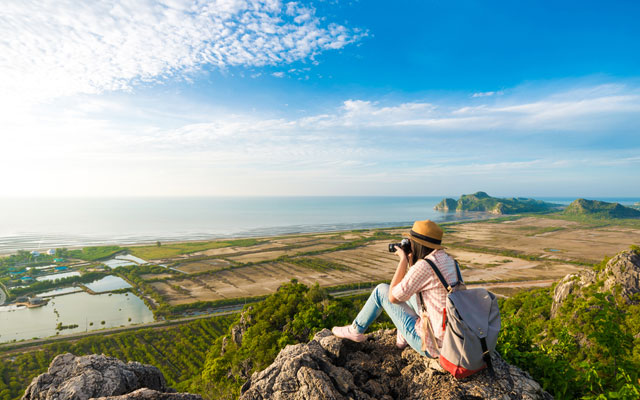Amadeus has released its latest report – Journey of Me Insights: What Asia Pacific Millennial Travelers Want – which unveiled the behaviours and preferences of millennial travellers (18-35 years of age) across 14 markets in Asia-Pacific.
Millennials currently represent more than 45% of Asia-Pacific’s population, with 60% of the world’s millennials expected to live in Asia by 2020.
Conducted in collaboration with YouGov, the research surveyed 6,870 respondents, 45% of whom were millennials at the time the data was collected.

Embracing the new
More so than the generations that have come before them, millennials are embracing new technology, experiences and ways of travelling. Forty-two per cent of millennials say they often use ride-sharing apps when they travel, and 35% frequently use sharing economy services for trip accommodation.
Millennials in India in particular have embraced the sharing economy more than their regional counterparts, with 75% using ride-sharing apps and 55% using home-sharing apps often or very often. On the other hand, millennial travellers in Japan are the least likely to use these services, with over 90% saying they never or seldom use these apps.
Targeting millennials’ desire for new experiences is a golden opportunity for travel providers. In fact, the research found that after recommendations that help them save money (37%), millennials are most interested in recommendations that expose them to new experiences (27%).
They are also open to travel providers sending them these recommendations or updates through alternative platforms. Twenty-three per cent of millennials say they prefer to be contacted via social media, which sits in second place behind e-mail (35%). However in countries like Thailand and Indonesia, social media comes up as the top choice for millennials, chosen by 50% and 34% of them respectively.
Karun Budhraja, vice president, corporate marketing & communications, Asia Pacific, Amadeus, said: “The millennial generation is indeed an extremely interesting generation. They grew up with the Internet and technology is second skin to them. They have an openness to new experiences and a willingness to rattle the status quo. They want different experiences in travel, so the industry must serve them differently.
“Travel providers will need to adopt new technology, new strategies, and above all, new mindsets if they want to secure millennial mind and market share. By understanding what drives Asia-Pacific millennials and what they value when they travel, businesses will be better placed to meet their needs.”
People over brands
When asked who has the most influence over their travel planning, and where they receive the most relevant travel recommendations from, millennials choose family and friends, as well as traveller reviews.
Somewhat surprisingly, millennials ranked celebrities and social media influencers right at the bottom, even lower than brochures.
“While millennials may still look to influencers to curate trends, ideas and inspiration, I believe they are also becoming more sophisticated in how they evaluate them. With so many influencers becoming brands unto themselves, some of the authenticity that made them so appealing in the first place starts to get lost. ‘Real’ is more important than ‘perfect’, and that is an important lesson for the industry to understand,” added Budhraja.
Cautious or adventurous?
Millennials have long garnered a reputation for being bold and adventurous. The research finds this true in some areas, but less so in others.
Compared to older generations, millennials are less likely to avoid visiting a destination that has had a recent terror attack, political or social uprising, or the likelihood of a natural disaster like an earthquake. While 59% of baby boomers would avoid a destination where natural disasters are likely, only 51% of millennials say the same.
However, the research also finds that millennials are less open than older travellers to sharing their personal information with travel providers, in return for more relevant offers or personalised services. Meanwhile, 68% of baby boomers and 66% of Generation X travellers say they are open to sharing their information, while only 62% of all Asia-Pacific millennials say likewise.
The research further finds that Taiwanese (76%) and Indonesian (75%) millennials are the most open (76%), while Japanese (33%) and New Zealand millennials (45%) were the least open. This caution may be due to millennials being tech-savvy digital natives, and therefore more likely to be aware of security and privacy issues.
“While this research has highlighted a number of unique behaviours and preferences of APAC millennial travellers, it is also worth pointing out that there are just as many similarities between millennials and travellers from other generations. Personalisation is increasingly important, being real is key, and travellers want to be connected with the right content, through the right channel, and at the right time. What is certain is that the travel industry can only thrive if we put the traveller at the center of everything we do,” said Budhraja.




















